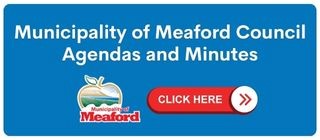By Stephen Vance, Editor
 I suspect that if there’s a word we will all likely tire of in the coming years, it’s ‘infrastructure’. Whenever I write about the coming infrastructure nightmare, I typically receive two types of responses from readers – some are concerned, and some think I’m nuts.
I suspect that if there’s a word we will all likely tire of in the coming years, it’s ‘infrastructure’. Whenever I write about the coming infrastructure nightmare, I typically receive two types of responses from readers – some are concerned, and some think I’m nuts.
I might be nuts, but the looming infrastructure crisis is very real, and you don’t have to believe this old bleeding heart.
In September of 2012, a ‘Canadian Infrastructure Report Card’ was released jointly by the Canadian Society for Civil Engineering, the Canadian Public Works Association, the Canadian Construction Association, and the Federation of Canadian Municipalities, and what’s contained in that report is pretty scary.
The report found that, on average, about 30 percent of Canada’s municipal infrastructure ranked between ‘fair’ and ‘very poor’, and the replacement cost for that municipal infrastructure is a whopping $178 billion nationally.
Roads, bridges, pipes, and sewers, water treatment facilities. All of that infrastructure that we rarely stop to think about, all of those pieces of our infrastructure puzzle, most of which was built decades ago in the glory days, when governments upheld their unwritten agreement with the private sector that when the economy tanks, government steps in with infrastructure funding to help give the economy the cash injection it needs to once again thrive.
The difficulty though, is that in modern times that unwritten agreement has fallen away in favour of appeasing the ever-increasing cries for tax relief.
In the Municipality of Meaford, we’ve been told that $20 million needs to be spent on bridges and culverts over the next 20 years, $190 million on roads over the next 50 years, and this week we learned that Meaford will have to spend $54 million on our water and waste-water systems in the coming years.
Big numbers can be easy to gloss over, but consider that nationally there is an estimated $14,000 required from every household in the country in order to bring the current ageing infrastructure up to snuff.
Though we don’t like to admit it, the wide-ranging and complex infrastructure system that has been created might make travel, and transport, and manufacturing, and food processing, possible, but it has proven to be unsustainable – especially in an age when the majority of folks don’t want to pay for anything, but want use of everything.
For those who advocate for zero tax increases, the future will not be kind. For those who don’t want to see government cutbacks and public sector jobs lost, the future will be no less friendly.
Had we had the foresight and had we been diligent in ensuring from the moment a road, or a bridge, or a sewer system, was built that savings for repair and replacement was initiated immediately, we might not be in the situation we are now. That said, what we’ve built is quite possibly too large and too complex for us to afford to maintain properly, even if for each project completed money was tucked away for repair and replacement.
As I’ve written before, we want all that infrastructure, and we need it in order for the society we’ve created to function. Our parents and grandparents paid to build it, and now it is our turn to pony up and repair, refurbish, or replace that precious infrastructure. The difference this time around is that in light of our ever-shrinking industrial base, and with real wages in decline, everyone is stretched as far as their cheque books will allow, and there’s no appetite for spending on the part of governments who are forever being lobbied to slash costs.
My question is, when will we as a society finally admit that we are living in an unsustainable system? We need to seriously take stock of what our needs are as opposed to our desires, and at some point we need to concede that we have to significantly scale back and live with less.
We seem to have no limits for funding our personal entertainment, and our gadgets, and our hundreds of television channels, but to tell a North American that they need to pony up some dough so the road doesn’t crumble beneath them on their way to work is much tougher to sell.








